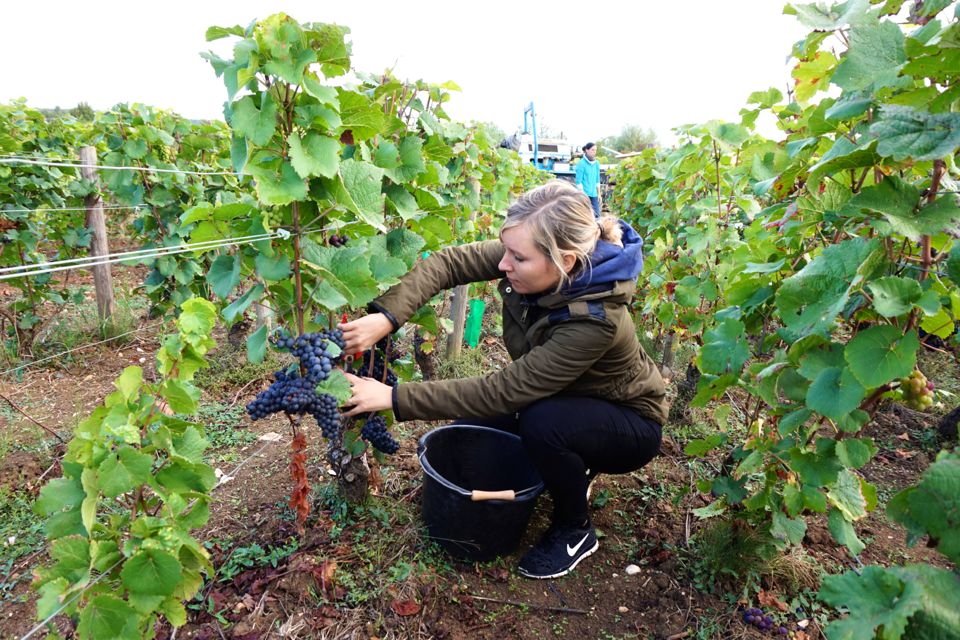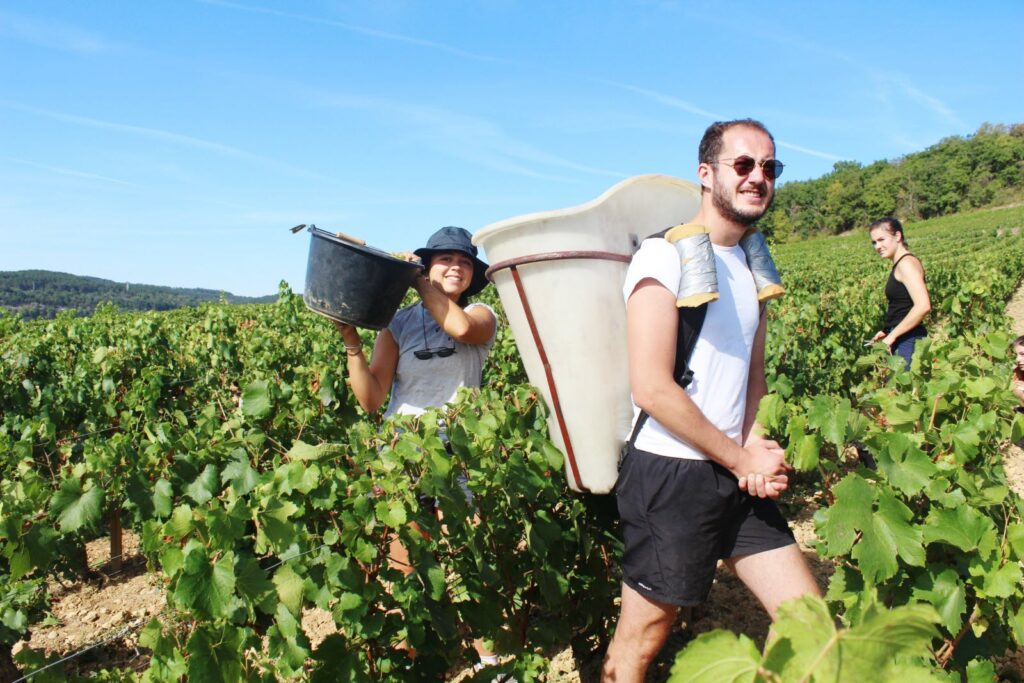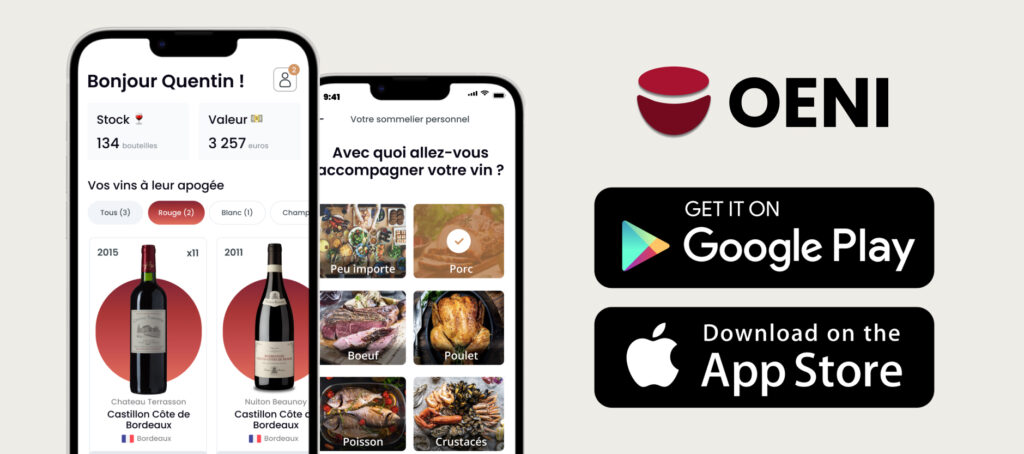Taking part in the grape harvest is attracting more and more enthusiasts. This seasonal tourism offers much more than a simple stay in the countryside. It offers an authentic winegrowing experience, at the heart of French winegrowing traditions.
If you're interested in wine-related articles, download our app for IOS or Android. It will give you access to our wine lexicon, our articles and our innovative solution, designed for all wine consumers and collectors.
Understanding the concept of participative harvesting
Participatory harvests involve wine enthusiasts taking part in harvests organized by wineries. In exchange for their help, these volunteers spend a day or a weekend with the winemakers. This formula appeals not only to the curious, but also to wine lovers eager to learn.
Many estates open their doors in September. Dates vary from region to region, but September remains the busiest period. Some establishments offer all-inclusive packages including accommodation, meals and entertainment. This allows for complete immersion.
Why choose this form of harvest tourism
Harvest tourism is all about human interaction. Travelers get to work in the vineyard, discover the gestures involved, and better understand the effort behind each bottle. Far from conventional tours, this experience is based on conviviality and sharing. Beginners need no experience. The winemaker explains everything on arrival.
This formula also attracts urbanites in search of meaning. It brings the consumer closer to the finished product. Wine is no longer a simple product. It becomes the fruit of a collective effort, shared between professionals and novices.
A winemaking experience that combines effort and pleasure

The day starts early. After sharing a cup of coffee, everyone receives their pruning shears. The correct way to cut the bunches is explained. The work is physical, but not inaccessible. The group progresses row by row, often in good spirits.
Breaks punctuate the morning. This is an opportunity to chat with the other participants, who often come from all over France. At midday, a harvesters' meal awaits everyone. It's often generous, prepared on site, and accompanied by wines from the estate.
The afternoon continues with picking and discussions. Some estates then organize tasting workshops or cellar tours. These extend the winemaking experience beyond the vineyard.
Where can you experience participative harvesting in France?
Initiatives are flourishing in the major wine-growing regions. In Burgundy, several family-run houses offer this kind of immersion. The hilly landscapes and typical climats will appeal to nature lovers.
In the Bordeaux region, some prestigious estates welcome volunteers in refined surroundings. Other, more modest estates prefer simplicity and authenticity. There's something for everyone.
The Loire Valley, Alsace and Beaujolais complete the offer. Everywhere, winemakers seek to showcase their expertise. Some even organize night harvests, to avoid the heat and offer a unique atmosphere.
Preparing for harvest tourism
Before setting off, it's time to get equipped. Comfortable clothes, a good pair of shoes and gloves are essential. The weather can change rapidly. It's best to bring a light rain jacket.
It's also advisable to book in advance. Places are limited, and the estates are often very selective in their profiles. It's important to point out any physical or dietary constraints. This allows the winemaker to anticipate and ensure a good general atmosphere.
Don't forget your camera. The vineyards offer splendid panoramas in autumn. Capturing these moments will prolong the pleasure on your return.
The benefits of participative harvesting

Taking part in a participatory harvest transforms the way you perceive wine. You better understand the stages of production. You measure the impact of climate, soil and manual labor on quality. It changes the way consumers look at wine.
What's more, this type of trip creates strong bonds. We share efforts, laughter and anecdotes. Some return every year, making lasting friendships, or even discovering a professional vocation.
Last but not least, your stay here will help you choose the right wines. After seeing, smelling and tasting, you become more attentive to origin and style. You develop a real emotional bond with certain bottles.
A responsible and humane approach
Harvest tourism is part of a sustainable approach. It encourages short circuits, promotes local heritage and supports small producers. It offers an alternative to impersonal travel.
What's more, the practice attracts a wide range of profiles. Families, groups of friends, retirees and students. There's something for everyone. What's important is the desire to participate and discover.
Some regions now label these offers to guarantee their seriousness. This reassures participants and enhances the value of a job well done.
A memory that lasts
Participatory harvests leave their mark. You leave with bottles, stories and emotions. You learn to respect the work of the vineyard. You develop an intimate bond with the wine.
It's also an original way to travel. You discover new territories, to the rhythm of the pruning shears and shared meals. We often come back transformed.
If you enjoyed this article, please read the following one "Discovering the wines of Lebanon"which may also be of interest to you!





